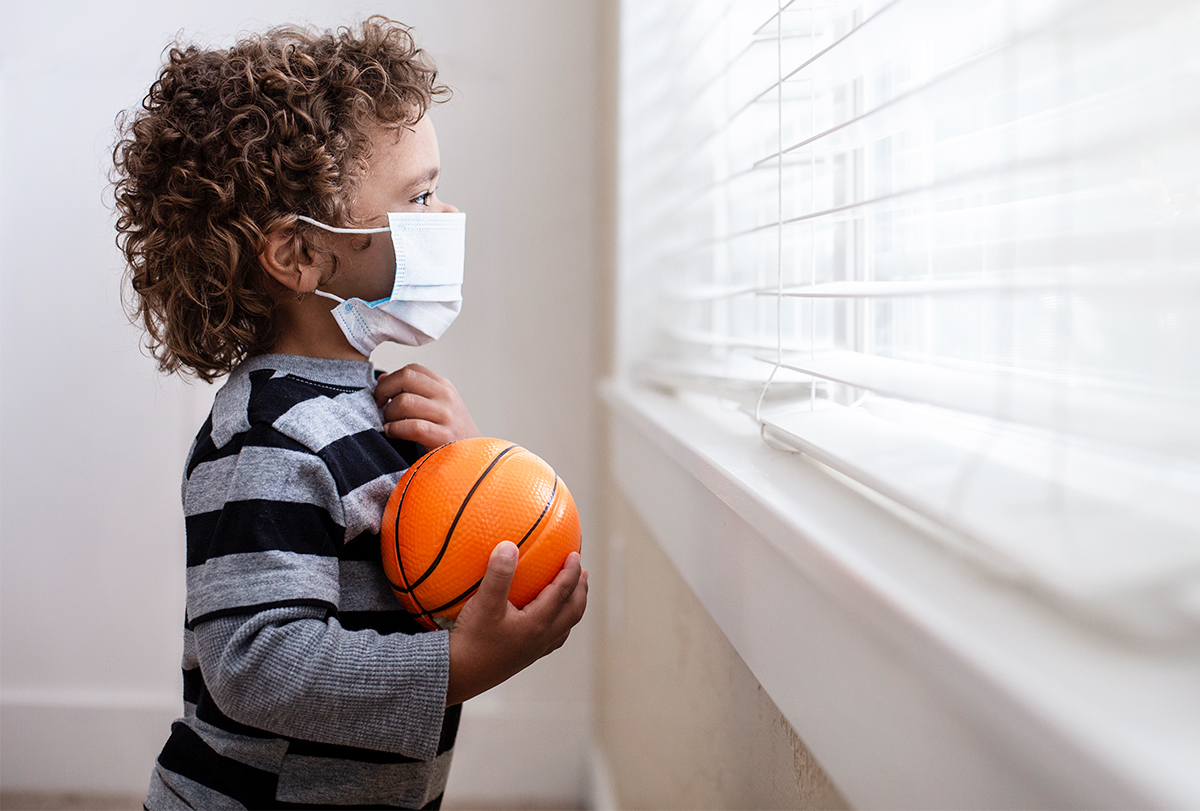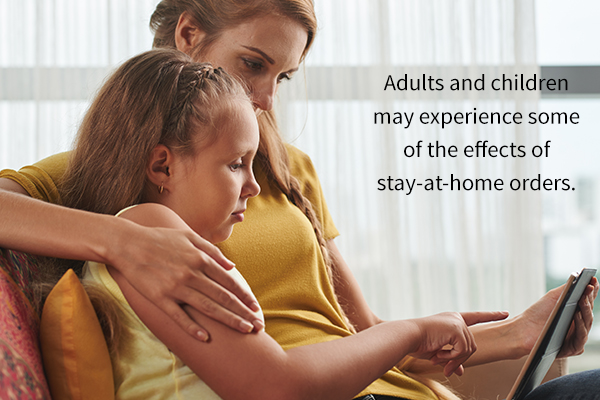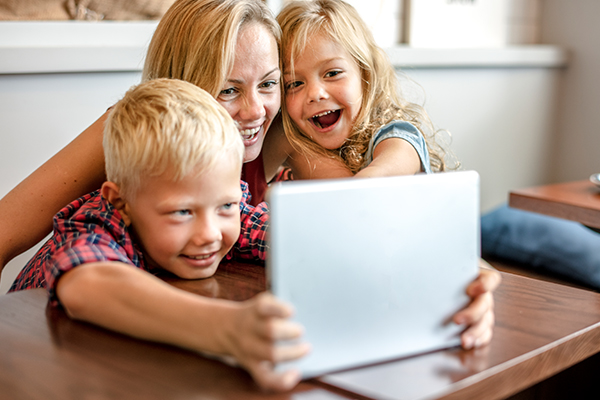In this article:
Social distancing can promote feelings of isolation in children and adolescents. Feelings of isolation can lead to anxiety and/or depression.

Children and adolescents who already experience depression or anxiety may have an increase in symptoms during social distancing. Confusion, worry, irritability, and restlessness may also be witnessed.
Anxiety During the Lockdown
Anxiety certainly can be experienced during the lockdown. For many, the natural flow and routine of life have abruptly changed. This can lead to anxious feelings, such as a lack of control and uncertainty.
What determines what is a normal reaction to these times is the severity and duration of the symptoms
Anxiety During the Lockdown in Children
Kids will follow their parents’ lead, so the most important thing is for parents to remain calm during this crisis. The following can be helpful:
- Establish a routine that allows for some structure/order to your day.
- Allow for plenty of together time (board games, taking walks, cooking together, working on a home project, etc.).
- Use this time to engage in conversation. Really listen to what your child has to say with curiosity. Reflect back to them what you heard.
Signs of Social Distancing and Anxiety in Children
Signs for parents to look out for with kids and teens include:
- Changes in mood (acting withdrawn, irritable, sad, constant worry, difficulty focusing and concentrating)
- Sleep difficulties (oversleeping or undersleeping)
- Loss of interest in normally pleasurable activities
- Appetite changes (eating too much or too little)
If any of these symptoms are moderate or severe and persist with the same or worsening intensity for longer than 2 weeks, it is time to reach out for support from a qualified mental health professional such as a psychologist or counselor.
Do Adults and Children Suffer From the Same Symptoms During the Lockdown?

Adults and children may experience some of the effects of stay-at-home orders, but it is important to remember that children do not have the cognitive capacity nor the maturity or life experience to aid them in processing these circumstances.
You can let your child know that you are feeling anxious and then let them know how you handle your anxiety. You can practice any coping mechanisms together (diaphragmatic breathing, meditation, positive self-talk, etc.).
Getting Kids Adjusted to the Lockdown
You can help your child get used to the lockdown by:
- Establishing a routine.
- Limit news exposure. (1)
- Being open to answering questions with age-appropriate information.
- Having your child be a part of making the schedule for the household.
- Spending plenty of time outdoors, with the recommended safety and hygiene measures.
- Limiting exposure to electronics, or screen time.
Avoiding Parent-Child Conflict During Lockdown
To reduce parent-child conflict:
- Parents, first and foremost, need to be taking good care of themselves.
- Parents must have plenty of rest, (2) good nutrition, (2) and good stress management. (2)
- Parents should have time for themselves and keep a good sense of humor.
- Parents should make sure that the kids are participating in the daily workings of the home. Parents will feel less overwhelmed, while children who share responsibility and feel like they are contributing grow up to become co-operative individuals with a good sense of self.
Lockdown Activities to Keep Your Child Engaged
Exercises and outdoor activities can be:
- Taking a walk
- Bike riding
- Doing yard work together
- Household cleaning
- Cooking
- Baking
- Arts and crafts
- Fishing
- Gardening
Role of Social Media in Promoting Lockdown-Related Anxiety Among Children

Social media is not an effective way to control anxiety. There is no way to control what is said on social media. Children and teens can quickly be bombarded by negative information that can overwhelm.
FaceTime, Skype, or Zoom with friends and family can be a wonderful way to stay emotionally connected during this time.
Regularizing Your Child’s Routine During the Lockdown
Making your child follow a fixed daily schedule will impart a sense of security and order during these uncertain times. Here’s how you can do that:
- Regulated sleep is very important for good mental health, so a bedtime/wakeup time should be established and maintained.
- Meals should also be consistent to allow for stabilizing blood sugar, which can impact focus, attention, concentration, and mood.
- Keeping plenty of downtime and time for fun is important.
Preserving the Mental and Emotional Health of Teenagers During Lockdown
Teenagers should also have electronics limited so as to not be overstimulated or overwhelmed. They are likely to have many thoughts and opinions about what is happening and should be listened to with both curiosity and empathy.
Also, make sure that they have healthy outlets (friends, exercise, journaling). Regarding a healthy mental state, these are unprecedented times.

- Parents need to stay regulated and make sure that they have good support and self-care, as this will have the largest impact on their children.
- Maintain a sense of humor.
- Remember that your family is all experiencing this together and doing the best that you can. Children need connection, compassion, and understanding.
- Practice gratitude.
- Allow this time to be spent focusing on the little things that really matter.
- Enjoying one another.
- Being connected to one another.
- Be creative.
Final Word
Children are extremely perceptive beings who are shaped by what they observe. Thus, it is the duty of the parents and other adults at home to set a good example for them to follow.
The uncertainty and social isolation that has accompanied COVID-19 can be quite unsettling for a young mind to process. Help your child make sense of unprecedented circumstances through proper communication.
Listen to your child’s fears, anxieties, and concerns and reassure them that everything will be alright. Instead of dismissing their feelings as naïve or childish, patiently explain to them what they cannot understand to dispel some of their fears.
If you approach the situation with a positive perspective, your child will follow suit. Treat this lockdown as an opportunity to learn new things and engage in other productive activities, rather than a period of inconvenience.
- Was this article helpful?
- YES, THANKS!NOT REALLY


